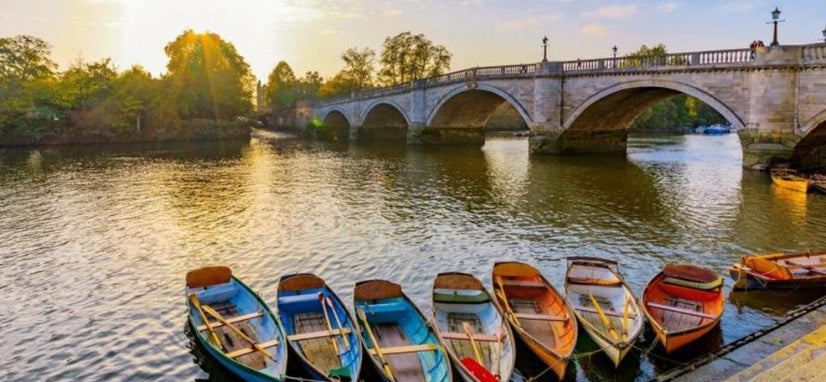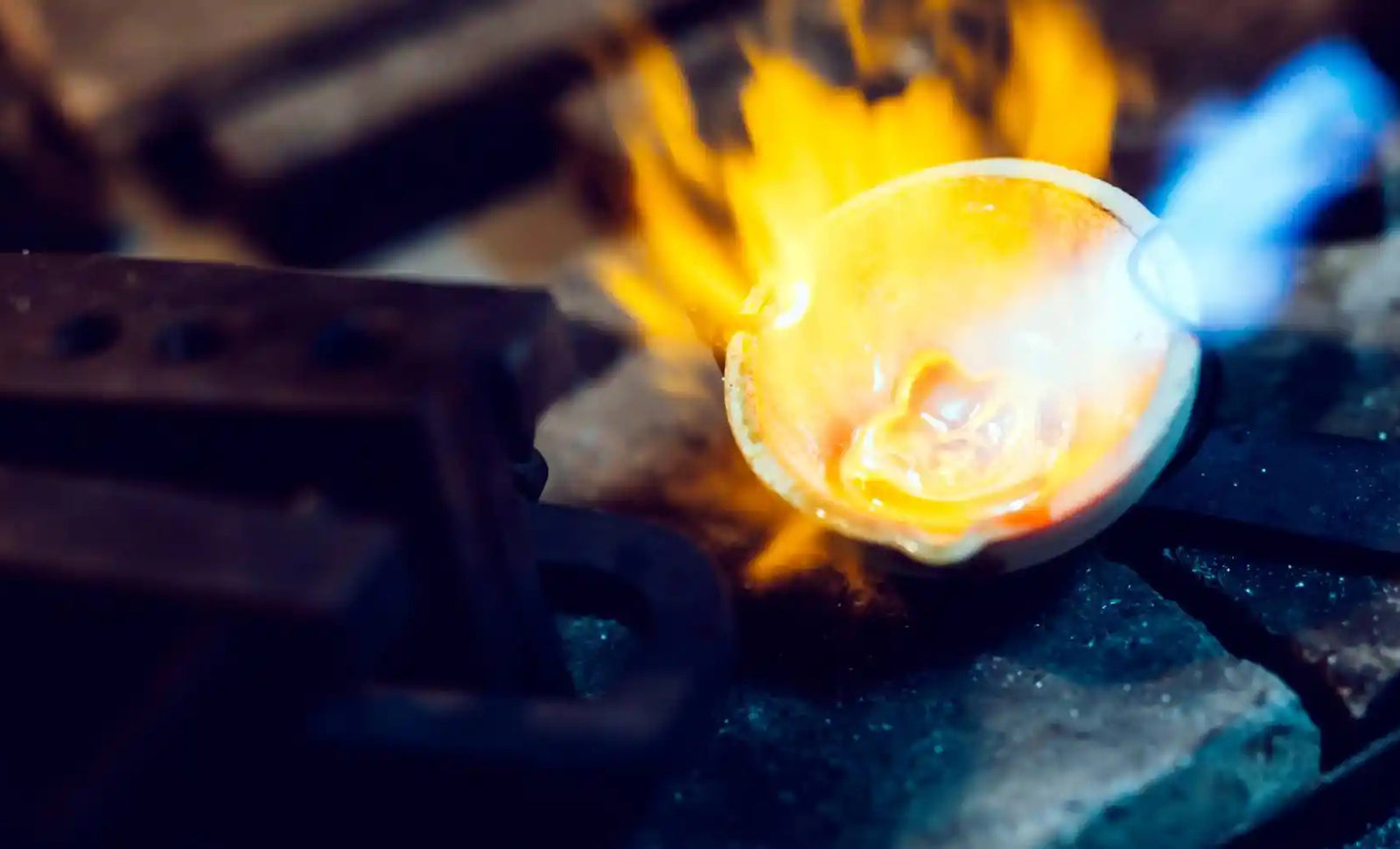The Ever Popular Diamond Cluster Engagement Ring continues to be on trend as a top choice for todays brides. First made popular in the Georgian era the classic look of a central stone surrounded by small diamonds had a resurgence in the 1970’s when Princess Diana’s engagement ring of a large central sapphire surrounded by diamonds captured every brides imagination. When Prince William used it to propose to Kate Middleton in 2010 he ensured it has stayed just as popular in the twenty first century. It allows for far more creativity and skill to go into the designing and making of a ring that is a far cry from the traditional single diamond solitaire in a simple claw setting. Browse all our cluster rings here
The next five rings illustrate the different choices of setting style for your cluster engagement ring.
Pave setting shown in the pear shaped diamond cluster ring allows the diamonds to touch and creates a seamless glittering band using round brilliant cut diamonds. Pave setting leaves a border to the edge of the diamond which protects the diamonds from knocks and wear for longer than the other setting styles. if you want to wear your engagement ring all the time then this is our recommended setting style. The central diamond in this ring is held in by two dagger claws and a V to enhance and protect the tip of the pear shaped diamond. The wedding band for this ring slips underneath the panel and sits up flush to the band of the ring. With cluster rings it is always worth considering how the wedding ring will fit with the main ring as they can sit very wide on the finger if they are not properly considered at the time of making.
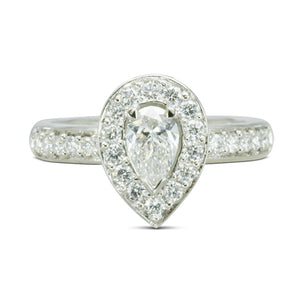
This trilogy cluster engagement ring was made in three parts and illustrates how important it is to plan your wedding ring at the same time. With limited space on the finger this cluster ring was designed to split into three parts to solve this. The final combined result looking like a single large ring. The client for this ring wanted to see as little metal on the ring as possible and to keep the bands as narrow as possible. We used the castle setting technique where the diamonds are cut into the metal work leaving only small points to hold the diamonds in place. the central round diamond is held by six dagger claws.


A similar effect can be seen in the round 3ct emerald cluster engagement ring where we have used fish tail setting. Fish tail setting is an additional decorative technique which we can use when larger diamonds are used for the cluster, ideally over 2.5mm. You can see how the side of the setting has been carved to create the claws to hold the diamonds and creates what’s know as a fish tail pattern. It requires great skill from the diamond setter.
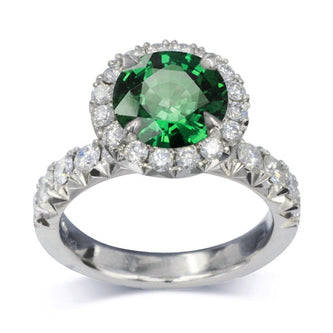
Channel setting is common in cluster rings from the Art deco period where geometric shapes were popular. channel setting is where the diamonds are fed into a pre-cut channel allowing them to touch and form a seamless line. In the princess cut diamond cluster ring below this technique has been used using princess cut diamonds to surround the central diamond and round brilliant cut diamonds in the band. it is most successful using the square diamonds as you have no gaps left once the diamonds are butted up to each other.
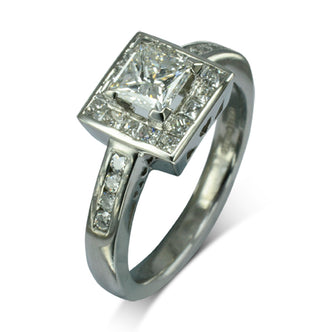
Claw settings can be used on larger diamond surrounds and can create delicate flower shapes to the cluster rings they create. Rings referencing flower themes are not new: The daisy ring was first popular in Edwardian times, it was formed of a small diamond in the centre surrounded by six diamonds of the same size.

It is possible to create a flower like ring using the other setting styles as in this 1.5ct scalloped edge cluster engagement ring. Handmade in platinum combining a rubover edge with pave setting and four dagger claws.

The cluster rings below illustrate the setting styles for the centre stone. for rings that are for an active life we always recommend a rub over setting so that the setting edge protects the full girdle of the stone. Where a no metal look is required the girdle of diamonds surrounding the central stone can protect it.
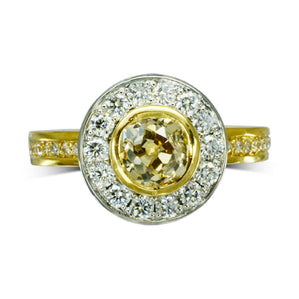

The central stone in a cluster engagement ring doesn’t always have to be a diamond. Though we love the large yellow diamond pictured above. This effect was achieved using a yellow sapphire below. Emeralds, aquamarines, sapphires and tanzanites are also popular and unusual centre stones.
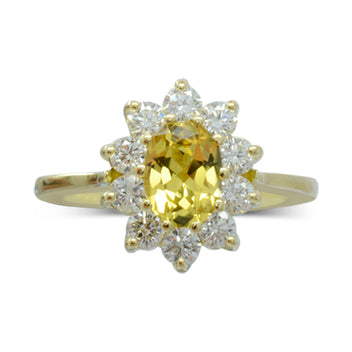
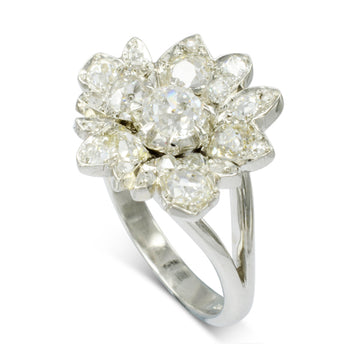
Creating such a large statement ring allows the designer and goldsmith to show some skill in the way that the underside of the ring is decorated. From secret diamonds and birthstones that only you can admires to hidden inscriptions and motifs.
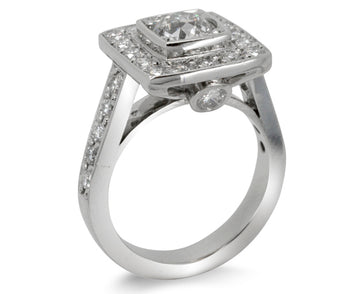
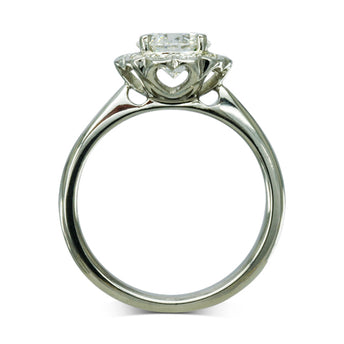

Contact our designer to discuss commissioning your perfect ring here.
